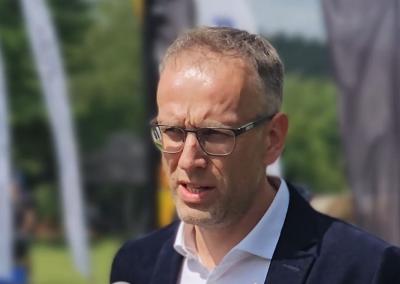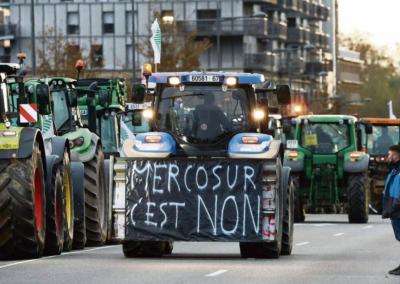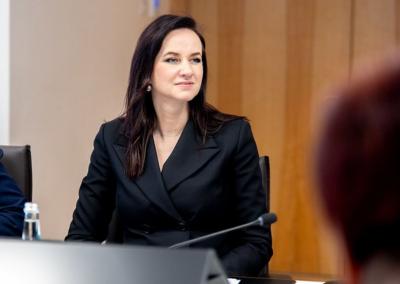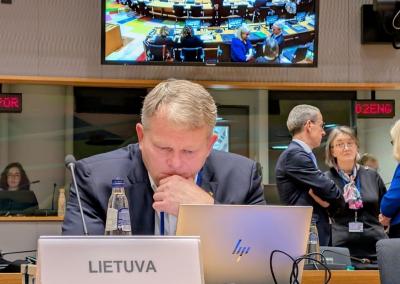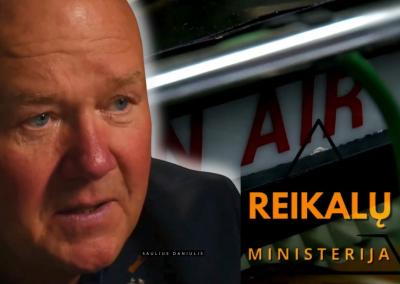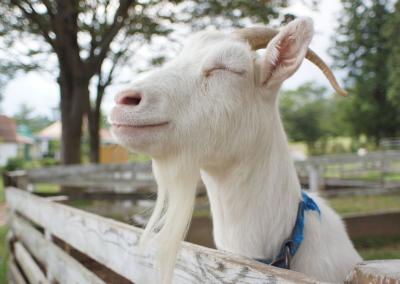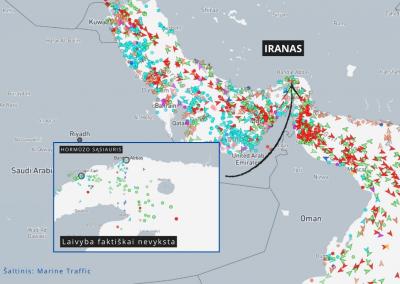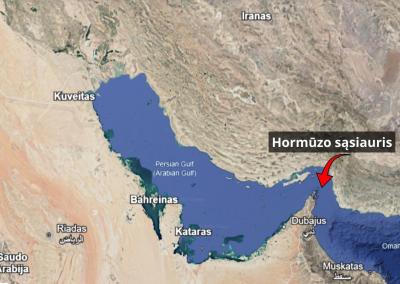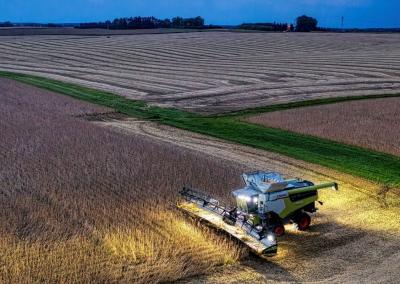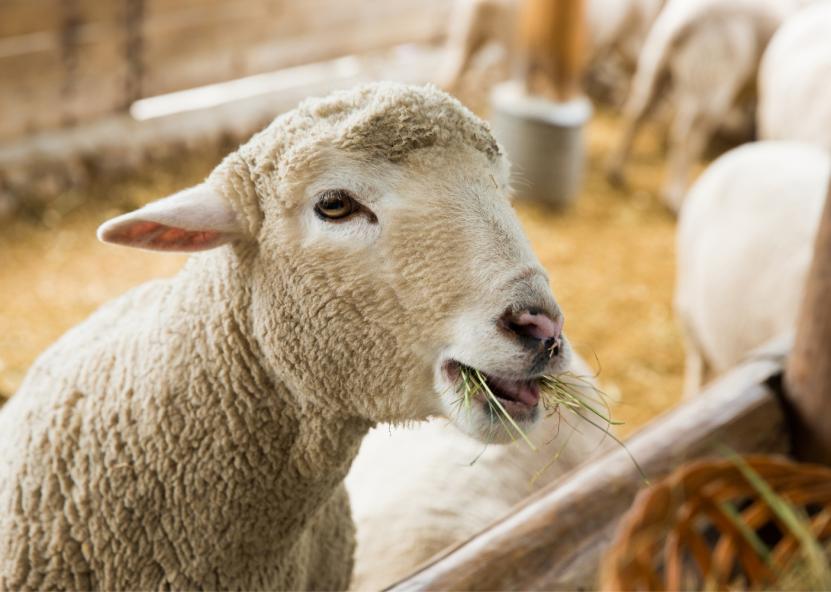Rheinmetall to halt Genetic Resources' sheep business
In exchange for the transfer of state-owned land to the German „Rheinmetall munitions factory in the Radviliskis district, six separate plots of land near Šeduva and Baisogala are being considered for transfer to the Lithuanian University of Health Sciences (LSMU).
Five of them are currently leased to the cattle breeding company „Genetiniai resursiai“, which is being privatised, according to the documents prepared by the Chancellery of the Government and managed by Turto bankas.
The latter company says that the seizure of the land, most of which is used for sheep grazing and fodder production, would halt the operations of its sheep breeding unit. As a result, „Genetic Resources“ last week contacted the Ministries of Agriculture, Economy and Innovation, the National Land Office (NŽT) and the Property Bank.
The draft resolution on the amendment of the decree on the granting of land in rural areas to scientific institutions, specialised farms and state-controlled companies, prepared by the Government Chancellery, provides for the invalidation of the clause granting a 340-hectare plot of land to the LSMU in the village of Kemėrai, near the town of Baisogala.
It is this plot of land to the west of the town that is to be handed over for the construction of the Rheinmetall plant.
„This plot will be returned to the needs of the state“, – the draft states.
The same resolution also wants to grant to the university five plots of land with a total area of 340 hectares leased to the company „Gamtiniai resursiai“ near Šeduva in the Radviliškis district, as well as one plot of state land of 12.5 hectares near Baisogala.
The land planned for the Rheinmetall plant would be taken over from LSMU on 1 July, and six plots would be allocated to the university on 17 June.
Rimantas Benetis, rector of the university, told BNS last week that several separate plots of land with a similar total area near Baisogala are being offered to the university in exchange for the transfer of the land used by the LSMU to the „Rheinmetall“ ammunition plant.
He said that LSMU is currently calculating the costs and possible losses of relocating the Baisogala-based farm of its unit, the Institute of Animal Husbandry, and did not rule out that the university may also ask for financial compensation from the government.
LSMU currently owns several large plots of state land around the town of Baisogala, which has a population of around 1,700, under a lease agreement, including a 340 hectares plot of land that is being transferred to the Rheinmetall plant. The land is used for animal feed, gene pool (endangered or critical breeds) cattle, livestock, horses and birds, which are used in research and student workshops at the Institute of Animal Husbandry.
„Stop the operation of the company's sheep breeding unit“The company „Genetiniai resursiai“ says the takeover of five 339.5 ha plots near Šeduva and transfer to LSMU would stop the company's sheep breeding unit from operating.
„It will not be possible to maintain the existing sheep and to properly perform the aforementioned functions (preservation of two breeds of sheep, production of fodder for sheep – BNS), and it is unclear what will become of the 18 employees of the sheep breeding department“, – said the company's letter sent to the state authorities last week.
„Please inform us what action will be taken regarding the privatisation of the company and the fate of the sheep breeding unit“, – the document states.
„Genetic Resources“ announces that it learned of the takeover of its land at a meeting of the company's board of directors last Wednesday.
According to the data of the registry centre, the lease contracts for five plots of land in the villages of Šeduva, Užuoveja, Puipiai and Pavartyčiai near Šeduva will be valid until March 2030. „Genetinis resursiams“
According to the company, its sheep breeding unit in Šeduva leases a total of nearly 383 hectares of land from the state, and plots near Šeduva are used for sheep breeding and fodder production.
Proposes to transfer entire sheep unit to university
Audrius Zalatoris, head of the company „Genetiniai resursiai“, said that taking over the land leased to the sheep breeding unit, but leaving the rest of the property, would not give the university a place to graze the sheep in the summer and to prepare fodder for the winter.
„We have a unit in Panevėžys district, in Upytė, so we might be able to transport fodder 50 kilometres away, but there is an additional cost, an extra expense“, A. Zalatoris told BNS on Tuesday.
„And what to do with sheep in summer? In barns? Nobody keeps them in barns as far as I know," said the head of „Genetic Resources“.
According to Zalatoris, the entire sheep breeding unit of the company in Šeduva, along with its livestock and buildings, could immediately be transferred to LSMU along with the land.
„Then we should be reorganised by separating the sheep breeding unit and transferring the whole unit with all the assets and land to the Lithuanian University of Health Sciences. Now they are taking the land and leaving the assets – sheep, barns, everything else, I don't know...“, – he said.
According to the company's CEO, the authorities could have informed the company about the planned land grab in early spring: „If the land was uncultivated and without livestock – that's a different matter. But there are livestock there and I don't have anywhere to put them in the summer“.„Genetic Resources“ said in a letter that on 1 May its sheep unit had 2,250 sheep, of which 781 – were Lithuanian Blackheads and 30 – were native Rough-legged. The company claims that under two contracts signed with the National Paying Agency (NPA), it is obliged to keep 905 and 34 of these breeds until 2027.
The company says it also has a centre on site where sheep are collected and exported to other European countries.
„Genetiniai resursiai“ raises cattle for meat and milk, carries out seed production of cereals, fibre and oilseed crops, experimental, educational and experimental activities, and protects and breeds Lithuanian native bighorn and black-headed sheep.
43% of the company's sales come from crop production, 42% from milk, 10% from cattle and 4% from sheep.
The company's sheep breeding unit is located in the village of Pavartyčiai, while the crop breeding unit is located in the village of Upytė in the Panevėžys region. In addition to these complexes, the company owns 168 hectares of 140 plots of land and leases over 1,600 hectares of land.
A new auction may be announced
„The land in question is state land. It is leased to the company and in this case it is up to the government to decide how to deal with the state land," the bank's Head of Communications K. Vaitkevičius told BNS on Wednesday.
„If there is some decision by the government, we are ready to appeal to the Privatisation Commission, to stop privatisation and reassess it“, – he added.
An auction for the sale of 100% of the shares in „Genetic Resources“ is scheduled for 7 June, with a starting price of almost €2.8 million.
The company was established in 2019 through the merger of „Šeduva Sheep Farm“ and Upytė Experimental Farm. The company was transferred to the Bank in October 2023, until then it was managed by the Ministry of Agriculture (MAA).
In mid-April, representatives of the Government and representatives of „Rheinmetall“ signed a letter of intent in Vilnius on the construction of a 155 mm artillery ammunition plant in Lithuania and started negotiations on an investment agreement. The agreement is expected to be signed shortly.


